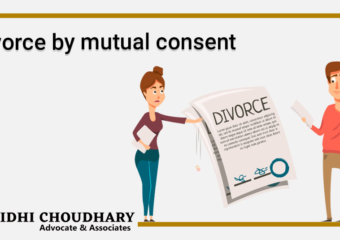Contested Divorce implies party desirous of divorce approach the family Court/Civil Court for the dissolution of marriage. Spouse seeking divorce has to take one of the grounds provided under the law of contested divorce.
There are different laws dealing with contested divorce for different section of the Society. Hindu Marriage Act,1955 provides ground for divorce for Hindus which includes Sikh, Jain and Budh religion. Indian Divorce Act,1869, provides grounds for divorce for Christian. Special Marriage Act provides grounds for divorce for people married under civil law and whose marriages are registered under Special Marriage Act,1954. Broad grounds for Divorce are as under:-
1. Divorce on the ground of Adultery
2. Divorce on the ground of Cruelty
3. Divorce on the ground of Desertion
4. Divorce on the ground of Conversion to another religion
5. Divorce on the ground of Unsoundness of mind or mental disorder
6. Divorce on the ground of Virulent and Incurable form of leprosy
7. Divorce on the ground of Venereal disease
8. Divorce on the ground of Renounce the World
9. Divorce on the ground of Not heard for a period of seven years or more
10. Beside above, there are couples of additional grounds for divorce available only to female.
CONTESTED DIVORCE PROCEDURE:
Contested Divorce proceedings commences with filing of Divorce petition. Family Court/Civil Court causes a notice to be served on the opposite party for appearance.
On receipt of summons, opposite party has to appear in person and/or through divorce lawyer and file the response.
Court may try to resolve the differences between parties to start with by conducting conciliation or sending the matter to counselor/mediation center. If there is no settlement between parties, divorce case proceeds as per procedure.
Once initial allegation and response and counter allegations process are over, which is called pleading, case is set up for evidence after determining issues of controversy between parties.
Party initiating contested divorce has to start with the evidence first. Other party is given a chance to cross examination witness/es of the opposite party.
After that responding party i.e. Respondent has to lead evidence. Similarly, cross examination process is conducted by the divorce lawyer of opposite side.
After conclusion of evidence, Final arguments are advances by divorce lawyers from both sides.
Then the court pronounces judgement. If party initiating divorce is able to prove the case, Family Court/Civil Court will grant the decree of Divorce.
Contested divorce requires expert divorce lawyer either in prosecuting or defending divorce case. Such expert divorce lawyer guides, strategize and plan the whole action. Effective planning by divorce lawyers increases the probability of success in the trial of the case for a favorable outcome.
Contested Divorce is a long process requiring through professional work and approach. Good Divorce lawyer take through these challenging and arduous task by his/her expertise and your counsel through turbulent and emotional time.









